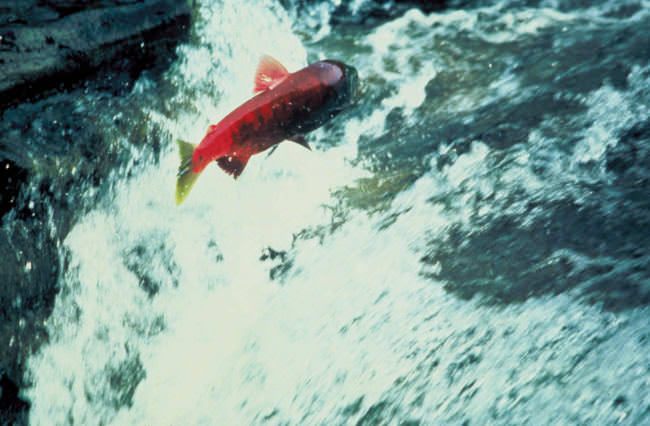
A group opposing a controversial ballot initiative to strengthen protections for salmon habitat has raised over $2 million since Jan. 8, roughly 10 times more than the initiative’s supporters brought in over the same period.
Those figures include non-monetary contributions like air travel and staff time.
In a filing this week with the Alaska Public Offices Commission, the opposition group, called Stand for Alaska, reported major contributions from some of Alaska’s biggest industry players.
Oil company BP gave $500,000 and ConocoPhillips gave $250,000, in addition to staff time. Other big donors included mining companies Pebble Limited Partnership, Donlin Gold, Kinross Fort Knox and Hecla, which contributed $200,000 each.
Yes for Salmon, the group backing the initiative, reported contributions of just over $200,000. Its largest contribution was $100,000 from John Childs, who is chairman of a Massachusetts private equity firm. Childs is also on the board of the Wild Salmon Center, an environmental group in Portland that’s supporting the ballot initiative. Other support came from national environmental groups like Trout Unlimited and local groups like the Alaska Center and Cook Inletkeeper.
Yes for Salmon supporters say the state’s current permitting rules for projects that could impact salmon habitat are too lax, while industry argues the measure would effectively shut down a wide range of projects.
But, it’s not yet guaranteed that voters will weigh in on the initiative. The state believes it’s unconstitutional and is opposing it in court. The Alaska Supreme Court will hear arguments in the case later this month.
Elizabeth Harball is a reporter with Alaska's Energy Desk, covering Alaska’s oil and gas industry and environmental policy. She is a contributor to the Energy Desk’s Midnight Oil podcast series. Before moving to Alaska in 2016, Harball worked at E&E News in Washington, D.C., where she covered federal and state climate change policy. Originally from Kalispell, Montana, Harball is a graduate of Columbia University Graduate School of Journalism.




